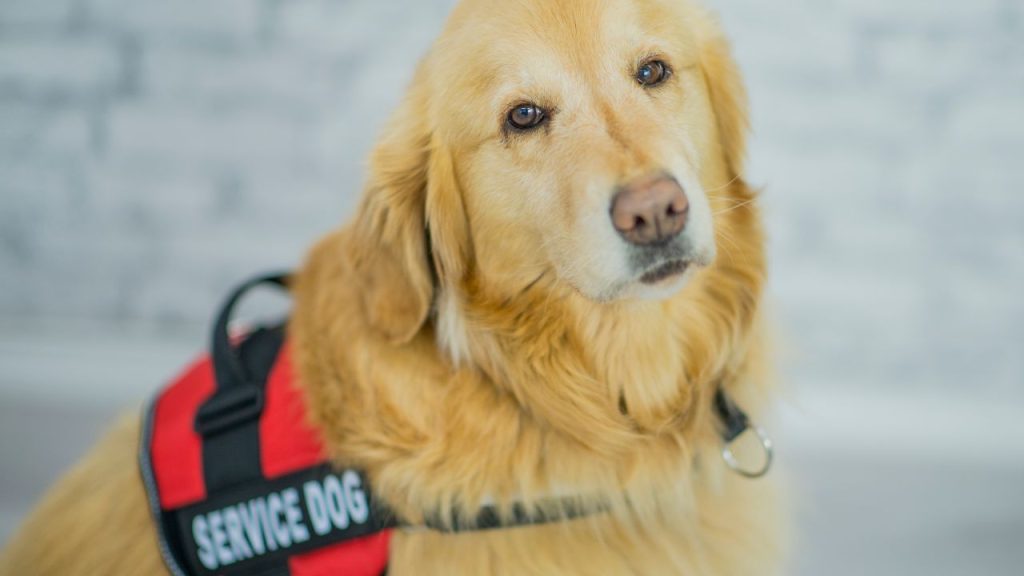Table of Contents
The Role of Animal Services in Wilmington, NC: Community Impact and Support
The role of animal services in Wilmington, NC, extends far beyond simply caring for stray pets. These dedicated organizations contribute significantly to community welfare by promoting responsible pet ownership, addressing animal welfare concerns, and facilitating numerous programs that enrich the lives of both animals and residents alike.
Community Programs and Initiatives
Animal services in Wilmington engage in various community programs aimed at creating a better living environment for both pets and their owners. Some notable initiatives include:
- Pet Adoption Programs: Local shelters like Friends of Brunswick County Animal Services and Wilmington Animal Services focus on finding loving homes for stray and neglected pets. Adoption events are regularly held to encourage community engagement and increase adoption rates.
- Spay and Neuter Services: Programs aimed at reducing pet overpopulation are critical. Many animal services collaborate with local veterinarians to offer low-cost spay and neuter clinics, ensuring that more pets stay healthy and safe.
- Education and Outreach: Workshops and seminars on responsible pet ownership, which cover topics from proper training to nutrition, help residents understand how to care for their pets effectively.
The Importance of Volunteer Work
Volunteers play an indispensable role in the animal services landscape in Wilmington. Their efforts range from fostering animals to assisting with outreach programs. By volunteering, individuals contribute not just time but also love and care to animals in need. Those interested can find opportunities through organizations such as The Humane Society and local rescue groups.
Economic Contributions
Animal services also bring economic benefits to the Wilmington area. Local pet stores, veterinarians, and grooming services thrive due to an engaged pet-owning community. By promoting pet adoption and responsible ownership, these services help to keep the economy robust. According to a 2021 survey by the pet industry, pet owners in North Carolina spend an average of $1,157 annually on their pets, impacting local businesses positively.
| Pet Expenditures in Wilmington, NC | Annual Amount ($) |
|---|---|
| Food | 450 |
| Veterinary Services | 200 |
| Grooming | 132 |
| Supplies | 200 |
| Training | 175 |
| Total | 1,157 |
Health and Welfare Impacts
By providing vital resources such as veterinary care, vaccination clinics, and health education, animal services in Wilmington greatly contribute to public health. Vaccinated pets contribute to a lower incidence of zoonotic diseases that can affect both human and animal populations. This health initiative fosters a safer community and ensures that pets lead healthier lives, which in turn reflects positively on their owners.
Fostering a Culture of Responsibility
Through various outreach programs, Wilmington’s animal services instill a sense of responsibility among pet owners. This focus urges residents to regard their pets as family members, leading to improved pet welfare and reduced rates of abandonment. Advocacy for reasons such as responsible pet ownership and the importance of regular veterinary visits brings the community together. In this regard, organizations like the North Carolina Department of Agriculture provide resources and support to ensure animals receive the necessary care and love.
Animal services in Wilmington, NC, play a crucial role in enhancing community engagement and well-being. From promoting pet adoption to ensuring proper pet care, these agencies make significant contributions not only to animal welfare but also to the overall health and prosperity of Wilmington’s community.
Volunteer Opportunities with Local Animal Services Organizations
Volunteering with local animal services organizations is a fulfilling way to give back to your community while making a significant impact in the lives of animals in need. Wilmington, NC, has a variety of opportunities for those looking to lend their hands and hearts to animal welfare. Here’s a closer look at what you can do.
Types of Volunteer Opportunities
- Fostering Animals: Many organizations rely on the support of foster families to care for pets until they find their forever homes. This can be especially critical for animals that need special care or socialization.
- Animal Care: Volunteers in this role often help with feeding, grooming, and walking animals. It’s a great way to interact with a variety of species while providing them the love and attention they need.
- Adoption Events: By participating in adoption events, volunteers help showcase animals available for adoption. Engaging with prospective pet owners can significantly improve an animal’s chances of finding a home.
- Fundraising: Many animal services organizations host fundraisers to support their initiatives. Volunteers can help organize, promote, and run these events.
- Community Education: Sharing knowledge about responsible pet ownership and animal welfare is vital. Volunteers can assist in delivering community programs or educational workshops.
Local Organizations to Consider
Here are some notable animal services organizations in Wilmington, NC, where you can volunteer your time:
| Organization Name | Website | Volunteer Opportunities |
|---|---|---|
| The Coastal Humane Society | coastalhumanesociety.org | Animal care, fostering, community outreach |
| New Hanover County Animal Services | nhcgov.com | Pet adoption events, volunteer shelter work |
| Paws with a Cause | pawswithacause.org | Training assistance, fundraising events |
| The Pet Adoption Center | petadoptioncenter.org | Adoption events, animal care, community education |
How to Get Involved
Getting started as a volunteer is often straightforward. Most organizations have online applications where you can express your interest. Here’s a simple step-by-step guide:
- Visit the websites of organizations you are interested in and navigate to their volunteer section.
- Fill out their application form or contact them directly to ask about openings.
- Some organizations may require an orientation session or training before you can begin.
- Once approved, you’ll be ready to start your volunteering journey!
Benefits of Volunteering
Beyond the joy of helping animals, volunteering offers numerous benefits:
- Skill Development: Gain valuable skills in animal handling, customer service, and event planning.
- Networking: Meet like-minded individuals who share your passion for animals.
- Mental and Emotional Health: Spending time with animals can boost your mood and overall well-being.
- Community Contribution: Make a tangible difference in your community by supporting local animal welfare efforts.
Whether you want to volunteer regularly or just occasionally, your contributions can help save lives and create a better community for both animals and people. Wilmington’s animal services organizations welcome your support, and you might even find a four-legged companion along the way!
Essential Resources for Pet Owners in Wilmington, NC
Owning a pet in Wilmington, NC, can be a rewarding experience filled with companionship, joy, and fun. However, pet owners must also have access to various resources that ensure the well-being of their furry friends. Here’s a comprehensive guide to essential resources available for pet owners in Wilmington, focusing on veterinary services, grooming, training, and animal shelters.
Veterinary Services
Access to quality veterinary care is crucial for every pet owner. Here are some reputable veterinary clinics in Wilmington:
- Animal Hospital of Wilmington – This full-service veterinary clinic provides medical, surgical, and dental care for pets. They also offer emergency services. For more details, visit their website.
- Wilmington Animal Hospital – Known for comprehensive pet healthcare and friendly staff, this hospital is dedicated to providing the best treatment for your pet. Check out their services on their website.
- Carolina Beach Veterinary Hospital – If you’re near Carolina Beach, this Vet provides a range of services and personalized pet care. Discover more about their offerings on their website.
Grooming Services
Regular grooming is essential for your pet’s health and well-being. Here are some grooming services in the Wilmington area:
- Furr Pet Salon – A top-notch grooming service focusing on comfort and care. They offer customized grooming based on your pet’s needs. Visit their website for appointments.
- The Doggie Parlor – This salon provides grooming, bathing, and pet-sitting services. They emphasize a safe and soothing environment for every pet. Learn more by visiting their website.
Training Resources
Proper training enhances the bond between you and your pet. Here are some training resources to consider:
- Paw-sitive Tails – Offers a variety of dog training classes, focusing on obedience and behavioral problems. You can find more about their methods on their website.
- Woofdogs – Specializes in obedience training, agility, and socialization. Their experienced trainers work closely with you and your dog to ensure effective learning. Explore their offerings at their website.
Animal Shelters and Rescue Organizations
Adopting a pet is a fulfilling experience. Wilmington is home to several shelters and rescue organizations:
- New Hanover County Sheriff’s Office Animal Services – This organization promotes responsible pet ownership and has various animals available for adoption. Discover more about their services at their website.
- Paws Place Rescue – A dedicated team focused on rescuing and rehabilitating pets in need. They have numerous animals available for adoption. Find out more on their website.
Pet Supply Stores
Finding the right supplies is essential for your pet’s health and comfort. Here are a few popular pet supply stores in Wilmington:
- Pet Smart – This national chain offers a wide variety of pet food, toys, and accessories. They even have grooming services and veterinary care. Check out their website.
- Woof Gang Bakery & Grooming – A locally loved boutique that features high-quality pet foods and unique pet accessories. Learn more by visiting their website.
By utilizing these essential resources, pet owners in Wilmington, NC, can enhance their furry friends’ lives while enjoying the journey of pet ownership. From veterinary care to grooming and training, there’s ample support available to ensure that both pets and their owners thrive in this beautiful coastal community.
Understanding Animal Adoption Processes and Available Shelters
Adopting a pet can be an immensely rewarding experience, yet the process can often seem daunting if you’re unsure where to start. Understanding the animal adoption processes and the available shelters in your area can simplify this journey, making it easier to find the perfect companion while also providing homes for animals in need.
The first step in the adoption process is identifying local shelters and rescue groups. In Wilmington, NC, various organizations are dedicated to rehoming animals. Here are some notable places:
These organizations not only provide shelter for abandoned or stray pets but also facilitate the adoption process. Typically, they offer various resources to help potential adopters make informed choices about pet ownership.
Once you’ve identified a shelter, it’s essential to familiarize yourself with their adoption protocols. Here’s a general overview of what to expect during the adoption process:
- Application: Most shelters require you to fill out an adoption application. This form often includes questions about your living situation, experience with pets, and your expectations concerning the animal you wish to adopt.
- Interview: After submitting your application, many facilities will conduct an interview. The purpose is to determine if you’re a suitable match for the pet you’re interested in. Be prepared to discuss your preferences and lifestyle.
- Home Visit: Some shelters may conduct a home visit to ensure that your environment is safe and pet-friendly. This might involve evaluating your yard for secure fencing, checking for harmful plants, or confirming a no-pet policy in rental agreements.
- Adoption Fee: Adoption fees can vary widely but typically help cover the costs of vaccinations, spaying or neutering, and other veterinary services. Ensure you inquire about what the fee includes.
- Meet and Greet: Before finalizing the adoption, you might have the opportunity to interact with your chosen pet. This is a crucial step where you can gauge the pet’s temperament and determine if it’s a good fit for your family.
- Finalization: Upon approval, you’ll sign an adoption contract, ensuring that you commit to providing a loving forever home.
It’s important to note that the adoption process can vary from one shelter to another, so always check with your chosen organization for specific requirements. Another crucial aspect to consider is the post-adoption follow-up. Some shelters provide initial resources for training, medical care, and advice on acclimating your new pet to its forever home.
The benefits of adopting from shelters are significant. You not only save an animal’s life but also contribute to the reduction of the population of homeless pets. Adopting a pet from an animal service in Wilmington, NC, can also come with the added benefit of adopting animals that are often already neutered, vaccinated, and microchipped, reducing initial veterinary costs for new owners.
| Shelter Name | Address | Contact Number | Website |
|---|---|---|---|
| Wilmington Animal Services | 2111 Dobbins Dr, Wilmington, NC 28403 | (910) 341-7858 | Visit |
| Paws of the Carolinas | 1122 Mewborn Dr #10, Wilmington, NC 28401 | (910) 799-4600 | Visit |
| SPCA of Wake County | 3003 AWS Dr, Raleigh, NC 27615 | (919) 772-2326 | Visit |
| North Carolina Humane Society | 2720 W Lane St, Raleigh, NC 27607 | (919) 832-4600 | Visit |
Knowing how to navigate the animal adoption processes in Wilmington, NC, can open the door to immense joy and companionship. Be sure to do your homework, ask questions, and take your time finding the right furry friend for your family. Every pet deserves a loving home, and that home could very well be yours.
The Importance of Spay and Neuter Programs in Animal Welfare
Spay and neuter programs play a crucial role in animal welfare, affecting both individual pets and broader community health. These procedures not only protect pets from various health risks, but they also tackle the serious issue of pet overpopulation.
Considering the realities of stray populations, reduced adoption rates, and overcrowded shelters, spaying and neutering significantly mitigate these challenges. By controlling the birth rate of unwanted pets, communities can ensure that adoption facilities are not overwhelmed, granting better care for the animals that already reside there. When shelters are not inundated, they can allocate more resources toward the welfare of the animals in their care.
Research has shown that spay and neuter programs directly contribute to lower euthanasia rates. According to the Humane Society, communities with accessible spay/neuter programs see a marked decrease in the number of animals entering shelters.
Health Benefits of Spaying and Neutering
Both spaying (for females) and neutering (for males) can prevent numerous health issues:
- Reduced Cancer Risk: Female pets that are spayed before their first heat significantly lower their risk of developing breast tumors. Male pets who are neutered are less likely to develop testicular cancer.
- Prevention of Infections: Spaying eliminates the risks associated with uterine infections (pyometra) in females, which can be life-threatening.
- Behavioral Improvements: Neutered males are often less aggressive and less prone to wandering, reducing the chances of being lost or getting into fights.
Cost-Effectiveness of Spay and Neuter Programs
Investing in spay and neuter programs can result in substantial savings for communities. Consider the following:
| Service | Typical Cost | Long-Term Savings |
|---|---|---|
| Spay/Neuter Surgery | $50-$150 | Preventing Health Issues |
| Veterinary Care for Pregnancy Complications | $500+ | Cost of Unexpected Illnesses |
| Shelter Care for Unwanted Litters | $200-$400 per litter | Avoiding Overpopulation Expenses |
These cost comparisons illustrate that the initial investment in spaying and neutering is far less than the cumulative expense of caring for the resultant unwanted litters and their potential medical problems.
Community Engagement
Community-based spay and neuter programs often include education and outreach initiatives. These programs aim to inform pet owners about the importance of these procedures and assist them in accessing affordable services. The collaboration between local governments, animal shelters, and nonprofits amplifies the effectiveness of these programs.
Partnerships can lead to successful campaigns that raise awareness about humane practices in pet ownership. Events such as “World Spay Day,” promoted by organizations like the World Spay Day, serve as a call to action to mobilize communities around responsible pet ownership.
Measuring Impact
To track the impacts of spay and neuter programs, local animal welfare organizations often collect and analyze data that reflects changes in shelter intake numbers, adoptions, and stray populations. This data-driven approach helps continually refine and improve programs. By examining metrics around:
- Reduction in shelter intake
- Increase in successful adoptions
- Decrease in stray populations
Animal services can report meaningful outcomes and garner further support for their initiatives.
Ultimately, spay and neuter programs represent a commitment to animal welfare and community health. By proactively addressing the issues of overpopulation and health, we can create a more humane society for both pets and people.
For those looking to support such initiatives, many local shelters and organizations, like Adopt a Pet, actively promote spay and neuter events. Getting involved with these programs fosters a culture of responsible pet ownership that can benefit everyone.
Conclusion
Animal services play a vital role in shaping the welfare of pets and the community in Wilmington, NC. The dedicated efforts of various organizations contribute significantly to improving the lives of animals and creating a compassionate environment for both pets and their owners. Through public awareness initiatives, community outreach programs, and emergency support, these services help promote responsible pet ownership while addressing the pressing issues of animal overpopulation and abandonment. By engaging with local residents, animal services workers create a network of informed and proactive pet owners who are better equipped to handle various challenges associated with animal care.
For those looking to make a meaningful impact, volunteer opportunities with local animal services organizations abound. Many of these shelters and rescue groups seek passionate individuals who want to help. Whether it’s walking dogs, fostering pets, or assisting with adoption events, there’s a niche for everyone to contribute. Volunteering not only aids animals in need but fosters a sense of community as residents come together for a common cause. The invaluable work of volunteers reinforces the importance of collective effort in promoting animal welfare. As potential volunteers reach out to local shelters, they can choose how best to contribute, ensuring that their skills and interests align with the needs of the animals they help.
Livelihoods in Wilmington also require comprehensive resources for pet owners. The array of support available includes local veterinarians, pet supply stores, and training facilities that cater to a wide range of needs. New pet owners or seasoned caregivers will benefit from understanding essential services, such as routine check-ups, vaccinations, and behavioral classes. Finding reliable resources can help mitigate some of the stress associated with pet ownership. As part of this broader support system, several community resources aim to educate pet owners about nutrition, healthcare, and training. By fostering an informed and responsible pet-owning community, Wilmington can ensure healthier pets and happier families.
Animal adoption processes hold their own significance in enhancing the welfare of not just animals, but the individuals who welcome them into their homes. Understanding the adoption procedures from local shelters empowers potential pet parents. By being aware of the requirements and timeline, families can prepare better and create an inviting environment for their new furry family members. Shelters in Wilmington often provide resources, such as post-adoption workshops and behavioral support, ensuring a smooth transition for both pets and their new families. This commitment to lifelong care extends beyond mere placement, underscoring the importance of creating strong bonds between pets and their adopters.
Central to the mission of animal services is the emphasis on spaying and neutering programs. Addressing overpopulation issues decreases the number of animals entering shelters and enhances the overall health and welfare of the pet population. Programs aimed at educating the public about the benefits of spaying and neutering are crucial. Cities like Wilmington witness horror stories of pets being abandoned or relinquished due to unintended breeding and the subsequent inability to care for the animals. By actively promoting spay and neuter initiatives, animal services can drastically change the narrative, ensuring fewer strays and healthier pets in our community.
The intersection of all these efforts—community impact, volunteer engagement, resources for responsible ownership, adoption processes, and spaying/neutering programs—creates a comprehensive system that supports pet welfare in Wilmington, NC. The city’s commitment to its animal services reflects an awareness that caring for pets transcends simply providing shelter or food; it involves nurturing a culture oriented towards humane treatment, prevention, and community engagement. Pet ownership should not solely be an individual endeavor but a collective journey.
In Wilmington, as individuals and organizations join hands to champion these causes, the effects ripple through the community. With continued support and participation, it is possible to not only alleviate current animal welfare concerns but also build a brighter future for all inhabitants—two-legged and four-legged alike. This commitment serves as a cornerstone for establishing a nurturing environment where every animal has the opportunity for a loving home and a fulfilled life. Participating in and promoting animal services can transform Wilmington into a model community for responsible pet ownership, showcasing that when we work together, we can effect meaningful change.








